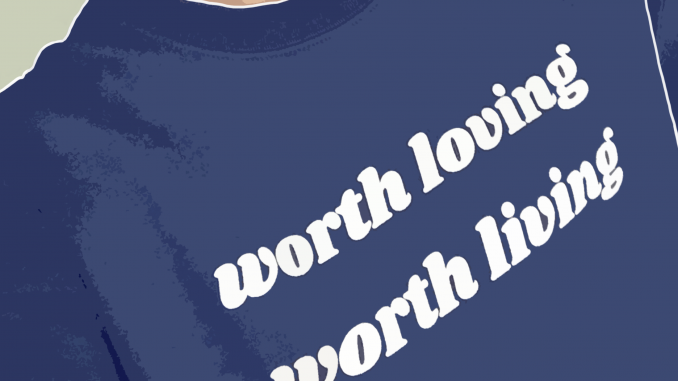
To love yourself is to be your own best friend.
Of course, we have loved ones who are willing to support us when we need a hand, but sometimes when we’re alone, we have to be there for ourselves in times of need. We need to be gentle with ourselves.
That is what I’ve learned to do in the process of recovering from self-harm. The concept of deliberately harming oneself is confusing for many people. It seems counter-intuitive, but 17 percent of adolescents have engaged in self harm at least once, and 15 percent of them are college students, according to the American Psychological Association.
For me, this misguided coping mechanism first appeared at the tender age of 16, while I was dealing with social isolation, not performing well in school and the symptoms of undiagnosed bipolar disorder. I had an unshakeable urge to “punish” myself for my mistakes, failures and lack of worthiness.
I told no one.
I didn’t engage in self-harm again until my sophomore year of college, which led me to leave the university to seek medical help.
When I turned 21, I finally decided I’d had enough and it was time to start picking up all my broken pieces and find wholeness again. I undertook a six-month yoga teacher training program and delved deep into spirituality.
I learned about the power of words and started using positive affirmations and mantras religiously.
I immersed myself in meditation, exercise, nutrition, self talk and journaling. I started seeing a therapist regularly and finally talked about my intrusive thoughts and urges to self-destruct. I learned how to breathe mindfully, understand my distorted thought patterns, meditate through my emotional meltdowns and most importantly, treat myself with less judgment and more compassion.
Yoga taught me to love my body for what it is capable of doing, and not just what it looks like. meditation taught me to quiet my mind enough to see the light that was buried beneath my self-loathing.
I used statements like “I am beautiful,” “I am enough” and “I am resilient” until they played on repeat in my head like a song. And eventually, they became the truth.
I’ve documented a lot of this journey on social media, so people have often asked me what it means to love myself. There is no universal answer, but for me, self-love is looking in the mirror deeper than you ever have before. It’s looking past your imperfections and seeing the things that matter — your inner child, your dreams, your kindness and sense of humor, your bravery and strength and all your creativity and talents.
Self-love is pausing to take deep breaths to pull myself into the stillness and peace of the present moment. It’s the practice of checking in on my needs and fulfilling them. It’s mastering the art of seeking help while also cultivating resilience. The balance between having a lazy Netflix day but also getting proper exercise.
It’s learning how to feel my emotions fully while also understanding they will pass.
Words alone cannot describe the wholeness that resides within us all, but self-love feels like both euphoria and heartbreak. When I hold my palms to my chest, listening to my heartbeat for five minutes straight, meditating on the sound, I’m humbled and honored to be alive in this world and to have survived.
Self-love feels like waking up from a nightmare and feeling like I can breathe again.
It’s loving every cell in my body, but it also means accepting the parts of me that are still drenched in self-loathing. It’s a never-ending conversation with myself about affirmations, forgiveness, encouragement and acceptance.
If you ask me what self-love means, I’ll say it feels like coming home.



Be the first to comment